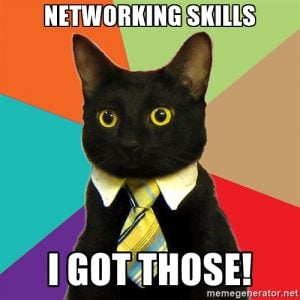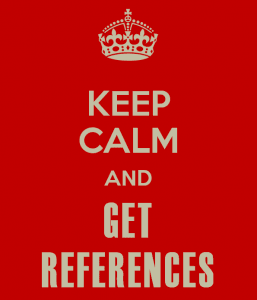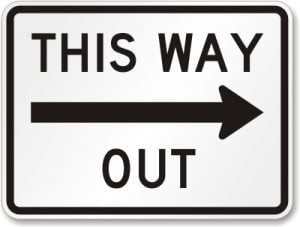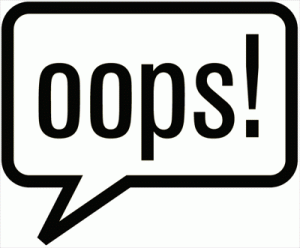In the July 18, 2017 Ask The Headhunter Newsletter, LinkedIn members reveal how they use the network to commit career suicide.
Question
Do you think LinkedIn has lost whatever promise it once had for people hoping participation would lead to job leads and better positions? Does it have any value now to the job seeker, or to the person seeking a better position than the one they currently have? Thank you for your thoughtful commentary.
 Nick’s Reply
Nick’s Reply
LinkedIn once showed promise as the leading professional network. Sadly, today it is at best merely an online directory. I think CEO Jeff Weiner sold out LinkedIn’s original mission when he first hired a boiler room of phone jockeys to sell “seats” to recruiters. This instantly turned LinkedIn into just another job board. The Microsoft acquisition seems to have had no meaningful impact on LinkedIn’s business model.
LinkedIn sells dope to dopes
When it told members to upload their contacts and tacitly encouraged them to connect to every connection of everyone they knew, LinkedIn devalued all those professional relationships. In generating every meaningless “contact” possible, LinkedIn could claim that every person and employer could make every possible job match. All its members had to do was ask.
And ask they did — and ask they do. You and I get their requests every day.
LinkedIn turned the delicate matter of approaching the right employer about the right job into a game of roulette. Every spin through millions of “contacts” leads to a beggar’s banquet at the world’s biggest professional-data dumpster, where everyone gambles for scraps.
Job search as gambling addiction is now the preferred way to commit career suicide. While publishing “career content” that urges members to make only quality connections (wink, wink), LinkedIn’s system facilitates and speeds up random, stupid, embarrassing and potentially self-destructive begging for jobs.
LinkedIn’s connection engine — LinkedIn messaging — is the new mail merge. It makes otherwise intelligent, capable, respectful people look like idiots. LinkedIn sells dope to people it turns into dopes. Every time I get a LinkedIn message announcing that someone I don’t know wants me to read their profile and lead them to “an opportunity,” I want to connect them to an addiction clinic. They’re not looking for jobs — they’re avoiding talking to employers.
Do you know what you look like?
Long ago, most LinkedIn users stopped being selective about accepting connection requests (see Join My LinkedIn Gang-Bang) because more connections meant higher status. Now the value of your n-th connection is probably zero. LinkedIn is a useful research tool, but forget about it as a networking tool. Look up people you want to do business with, but make contact with them the old fashioned way: through trusted referrals that actually know you. That still works best.
A person panhandling on a city street corner knows what they look like. Does this LinkedIn member who contacted me through LinkedIn Messenger know what he looks like?
He looks desperate and clueless — lost in the job market. Why would I recommend or hire someone who doesn’t know how to approach the right employer? Why would I want a healthcare worker who gambles with his reputation? Why would I want him working with my patients or customers?
Job panhandling
Let’s take a look at some of the panhandling requests I get via LinkedIn from people I don’t know who don’t know me. I don’t respond to most of these, but I sometimes fantasize about the snarky replies I’d send them.
Nicks’ Snarky Reply
My responses to each sentence of that query, respectively:
- Who cares?
- How will looking at your LinkedIn page pay off for me?
- No.
- Don’t bother.
Nick’s Snarky Reply
You went to MIT and you’re panhandling strangers for a job? Is this how you got your startup funding, by spamming venture capitalists? If you don’t know what I specialize in, why did you contact me?
Nick’s Snarky Reply
You work in marketing and you can’t write a note that instantly makes me want to call you? You want to hear about “any” opportunity? Paint my house.
Nick’s Snarky Reply
How’d you sneak in among job seekers? You specialize in IT consulting? Everybody specializes in IT consulting! Do you paint houses?
Nick’s Actual Reply
Please check these two articles:
Headhunters find people, not jobs
You have a common misconception. It doesn’t matter how much you need a job. The best headhunters will not help you find a job. They focus on the assignments their client companies give them — and they go looking for the people their clients need.
Do not rely on headhunters in any way. If one finds you, great — but that’s like counting on lottery winnings to pay your mortgage.
Nick’s Snarky Reply
Yes, you shall remain in my disposal! Regards!
How to search for a job
You search for a job by identifying companies that make products or deliver services you’d like to work on. (See Pursue Companies, Not Jobs.) Then you figure out — figure out — what problems and challenges those companies face in running their business.
Most important, you carefully and thoughtfully pick a handful of your skills that you could apply to those problems and challenges, and you prepare a brief business plan showing how you’d use those skills to make the business more successful.
(Note that this does not involve reading job postings.)
Then you hang out with people who have business with the company, for as long as it takes to make friends with them, until they get to know you well enough that they’re happy to refer and recommend you personally to the manager whose department you could clearly help.
That’s how you connect with a job. You don’t ask someone else to do the work. Because they won’t.
How to commit career suicide
When you hang out on an online street corner (LinkedIn is just a street corner), throwing handbills (your profile) at passersby you don’t know who don’t know you — and expect one of them might take you by the hand and lead you to a good, well-paying job — you commit career suicide.
When people in your line of work recognize you on that street corner — or meet you later — they realize you’re undisciplined, lost, thoughtless, and incapable of demonstrating your value to the handful of employers that would really benefit from working with you.
I want to ask those who sent me the above requests, did you calculate what happens when all of my (or anyone’s) LinkedIn contacts send such queries to all their connections? LinkedIn makes money! But you kill your career. Your blind solicitations make you a dead man walking.
It’s embarrassing. Begging opportunities from people you don’t know that don’t know you reveals that your judgment stinks. Playing LinkedIn job roulette is a sign that you’re addicted to gambling. And people who gamble are bad risks in anyone’s business — or professional circle.
What kinds of LinkedIn solicitations do you get from people you don’t really know? Is LinkedIn a job hunting tool? Or an excuse for not job hunting?
ADDENDUM
In the comments section below, reader Cynthia Wharton, a headhunter, explains better than I have how LinkedIn has become the career suicide game de rigeur. When they use the tools LinkedIn conveniently provides to easily spam all of kingdom come with “requests” for job leads and introductions to employers, users kill any interest a good headhunter or employer might have in them.
Says Wharton:
I steer a wide birth away from Linked In candidates and resort to what I do best, headhunting the perfect fit via my own network and other avenues that have been successful in my career.
She steers away because over-exposed LinkedIn candidates appear desperate and undesirable:
…candidates have over saturated their resumes out via Linked In and I cannot consider them if they have already sent their details to the employer I have in mind for them…
And it’s not only headhunters who don’t want sloppy seconds. Wharton notes that employers steer away, too:
I am finding many of the companies I do placements for, have indicated they are exceptionally frustrated by the daily inundation of unsolicited applicants. I’ve had several tell me that when they see a resume come in from the site, they instantly drag it into their trash folder. They know full well that every one of their industry competitors more than likely also has it as well. Why would they hire someone who may be constantly contacted by other employers?
That’s what I mean when I suggest LinkedIn is a game of career suicide. Thanks to Wharton for explaining it better than I did. Please read the rest of her comments below.
: :




 After my interview was scheduled I did my due diligence and started doing research to prepare. Sh*t hit the fan when I got to employment reviews on sites like Glassdoor and Indeed.
After my interview was scheduled I did my due diligence and started doing research to prepare. Sh*t hit the fan when I got to employment reviews on sites like Glassdoor and Indeed. Recent reports from the Federal Reserve suggest that switching jobs — and probably employers — is the best way to boost your salary and your career.
Recent reports from the Federal Reserve suggest that switching jobs — and probably employers — is the best way to boost your salary and your career. My new employer wants me to list in my LinkedIn profile that I’m working for her, and to include the company’s logo, but I’m still in the 90-day probationary period of my new business development job. I don’t want other employers to see it yet. She’s made no commitment to me, and besides, I still don’t have the private office or company phone she promised.
My new employer wants me to list in my LinkedIn profile that I’m working for her, and to include the company’s logo, but I’m still in the 90-day probationary period of my new business development job. I don’t want other employers to see it yet. She’s made no commitment to me, and besides, I still don’t have the private office or company phone she promised. Nick’s Quick Advice
Nick’s Quick Advice Question
Question Who’s really bad in today’s HR Technology world?
Who’s really bad in today’s HR Technology world? “When Joberate technology tells the recruiter that a person’s J-Score went up, it means that person’s job seeking behavior has increased, alerting the recruiter when it becomes the ideal time to contact a potential candidate. At that point a recruiter can send an InMail to a prospective candidate whose job seeking behavior and activities have just increased.”
“When Joberate technology tells the recruiter that a person’s J-Score went up, it means that person’s job seeking behavior has increased, alerting the recruiter when it becomes the ideal time to contact a potential candidate. At that point a recruiter can send an InMail to a prospective candidate whose job seeking behavior and activities have just increased.” I recently had an experience with a headhunter(?) I do not know who sent me an unsolicited pitch to look at a job listing in my field in my city. The pitch was sent via LinkedIn with an attachment. I do not open attachments from people I do not know. This brings up the issue of cyber security in dealing with any kind of pitch about a job.
I recently had an experience with a headhunter(?) I do not know who sent me an unsolicited pitch to look at a job listing in my field in my city. The pitch was sent via LinkedIn with an attachment. I do not open attachments from people I do not know. This brings up the issue of cyber security in dealing with any kind of pitch about a job. Did I say check references?
Did I say check references? Reader 1: Back in the 20th century, employers actually reviewed resumes by reading them rather than scanning them into a computerized ranking system. Keywords have turned hiring into a pass-the-buck game, with HR complaining it can’t find talent! Well, HR isn’t looking for talent. HR isn’t looking for anything. Phony algorithms are keeping the talent unemployed while HR gets paid to do something else! The question is, what is HR doing?
Reader 1: Back in the 20th century, employers actually reviewed resumes by reading them rather than scanning them into a computerized ranking system. Keywords have turned hiring into a pass-the-buck game, with HR complaining it can’t find talent! Well, HR isn’t looking for talent. HR isn’t looking for anything. Phony algorithms are keeping the talent unemployed while HR gets paid to do something else! The question is, what is HR doing? Budget problems may impact hiring and internal promotions, but it’s HR’s job to make sure all the i’s are dotted and the t’s are crossed before HR makes offers that impact people’s lives. Don’t make job offers if you don’t have the authority to follow through. If your company doesn’t give you that authority, then quit your job because you look like an idiot for having a job you’re not allowed to do. What happens to every job applicant is on you. (See
Budget problems may impact hiring and internal promotions, but it’s HR’s job to make sure all the i’s are dotted and the t’s are crossed before HR makes offers that impact people’s lives. Don’t make job offers if you don’t have the authority to follow through. If your company doesn’t give you that authority, then quit your job because you look like an idiot for having a job you’re not allowed to do. What happens to every job applicant is on you. (See  The job of recruiting is about identifying and enticing the right candidates for jobs at your company. It’s not about soliciting everyone who has an e-mail address, and then complaining your applicants are unqualified or unskilled. You can’t fish with a bucket.
The job of recruiting is about identifying and enticing the right candidates for jobs at your company. It’s not about soliciting everyone who has an e-mail address, and then complaining your applicants are unqualified or unskilled. You can’t fish with a bucket. I have a standing challenge to anyone in HR: Give me one good reason why you need to know how much money a job applicant is making. No HR worker has ever been able to explain it rationally.
I have a standing challenge to anyone in HR: Give me one good reason why you need to know how much money a job applicant is making. No HR worker has ever been able to explain it rationally. part of the workforce), there’s plenty of talent out there to fill the 5.6 million vacant jobs in America. (See
part of the workforce), there’s plenty of talent out there to fill the 5.6 million vacant jobs in America. (See